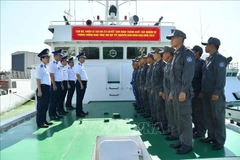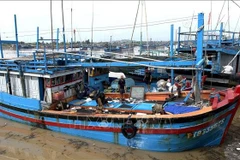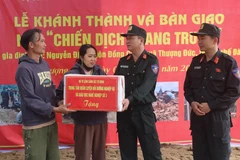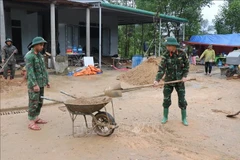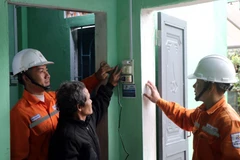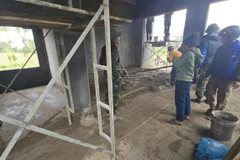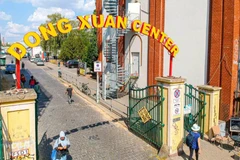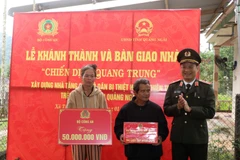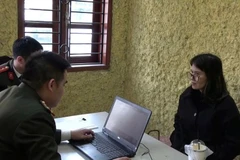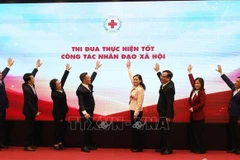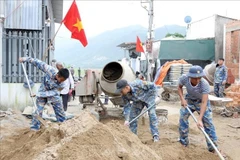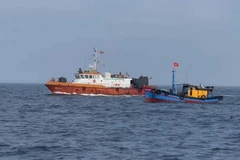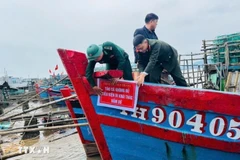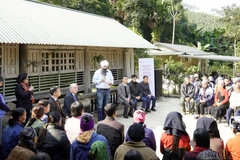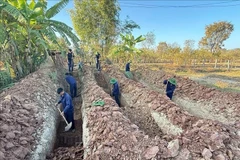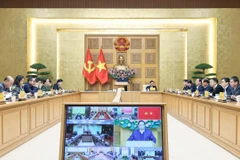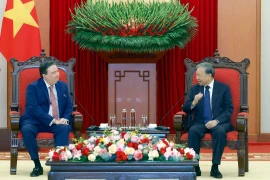Granting an interview to Vietnam News Agency, Kunio Senda, DirectorGeneral of the ADB’s Southeast Asia Department, said the challenges aretransforming the GMS transport corridors into genuine economic corridorsand enabling the GMS to tap more fully into the opportunities that thecurrent economic resurgence and dynamism in Asia offers.
The critical issues include how to effectively link the GMS with Indiaand the rest of South Asia, in a similar manner that it is nowbenefiting from its increasing links with China, a GMS member, in termsof increased exports, supply of manufactured goods and FDI; and how tostrengthen complementarities and synergies with other regionalcooperation initiatives, particularly ASEAN and ASEAN+3, he said.
Another challenge faced by the GMS is to address the risks of globalwarming and climate change. “It is important to integrate climate changeadaptation and mitigation measures in both national and subsregionaldevelopment efforts. Among the possible directions of efforts in thisregard are, for instance, the further development of railway links assubstitute to fossil fuel-based transport modes and the development ofrenewable energy sources,” he said.
The GMScountries must effectively address other risks usually associated withincreased connectivity, including communicable diseases, humantrafficking and transnational crime, and biodiversity losses, he added.
In addition, the subregion also faces challengesposed by its changing demographics and increased urbanisation, includinghuman resource development, education, labour reforms, migration andprotection of migrant workers.
The ADB official alsodealt with the GMS’s increased mobilisation of private investments forits economic cooperation programme, including public-privatepartnerships.
He expressed the confidence in theGMS’s settlement of challenges with assistance from the ADB, saying thatdespite the challenges faced by the GMS region in the next decade, ADBis optimistic that the GMS Programme would continue to move forward andwill be better equipped to deal with a rapidly changing regional andglobal landscape under its new Strategic Framework (SF) for the2012-2022 GMS Programme.
“The maturity we havegained as a cooperation programme, along with a well thought of newstrategic framework, will ensure that we can effectively help addressthe challenges and expand the frontiers of out cooperation among the sixGMS countries,” he affirmed.
ADB will endeavour toaddress and maintain its relevance vis-à-vis emerging trends and issues,and continue to help the Mekong countries achieve their vision of anintegrated, prosperous and harmonious subregion, even in the midst if arapidly changing and challenging regional and global landscape, headded.
As a regional institution, ADB will continue tocoordinate with key GMS stakeholders and particularly with the MekongRiver Commission (MRC) to promote efforts to ensure the sustainabledevelopment of the Mekong subregion.
According toKunio Senga, transport improvement leads to trade improvement andeventually translating into improved quality of life of people in theGMS. Definitely, the transformation of transport corridors intofull-pledged economic corridors will require improved transport andtrade facilitation in the subregion.
“The countriesare now working intently on a programme of action for transport andtrade facilitation, which aims to expand and deepen exchange of trafficrights, improve border procedures and coordinated border management, andstrengthen sanitary regime for GMS trade,” he added.
The ADB official stressed that the GMS Programme recognises the keyrole of building strategic alliances and partnerships with otherinternational organisations, particularly with ASEAN and the MRC.
As the GMS Programme is the principal facilitating regionalcooperation mechanism for the subregion, it needs to work more to avoidduplication and ensure complementarities with other subregionalcooperation initiatives that also operate in two or more GMS countriessuch as the Ayeyawaddy-Chao Phrya-Mekong Economic Cooperation Strategy(ACMECS), the ASEAN-Mekong Basin Development Cooperation (AMBDC) and theCambodia-Laos-Vietnam (CLV) Development Triangle.
The GMS comprises China and five Southeast Asian countries, namely Cambodia, Laos, Myanmar, Thailand and Vietnam./.
